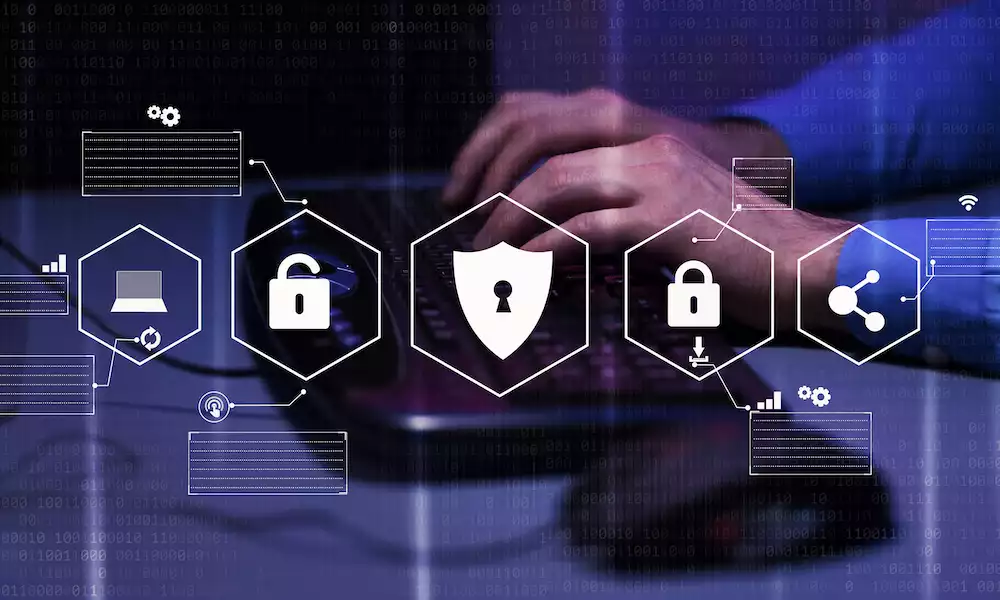Security
Security tips for your business

Cybersecurity is not just for the big players like eBay or Amazon. Cyber-crime statistics for 2017 revealed that over one-third of global cyber-crime victims were small enterprises with 250 employees and less. Small businesses such as home-based entrepreneurs who rely strongly on the Internet for marketing can also benefit from being cyber conscious.
Small businesses still have a responsibility towards customers to keep their identity safe, protect data, and prevent online breaches and, to keep their money safe. Since small business owners may lack the resources and funds to employ trained professionals, and install the latest technology, they sometimes overlook the importance of keeping cybersecurity up to date.
Fortunately maintaining a healthy, safe online presence is affordable for small businesses.
1. Educate all Employees
Employees must understand the need to protect the business from cyber-attacks. Employees should be discouraged from using the business computer network and internet for personal reasons such as checking their social media accounts or emails.
An email, for example, may be infected with malicious malware, that could compromise cybersecurity. Training employees on how to use company resources ethically can help prevent security breaches.
Employees should also learn to identify unknown email addresses and strange phone calls requiring employees to access the business’s database. Teaching employees about real-life cyber-attacks such as ‘Wannacry’ is recommended.
2. Use Strong Passwords and Change Passwords Regularly
Passwords should not be easy to guess and should never be shared. Using a range of strong passwords makes it difficult for hackers to infiltrate the computer network. If a hacker manages to learn your passwords, then they will use the same password to try and access all your other accounts.
To avoid forgetting your passwords, use a password manager such as Dashlane or LastPass to manage your passwords. Some devices have a built-in password manager which you can also use.
3. Limited Access for Employees
Employees should not have access to all the business files or information – they need to know just enough to do their job. Customers put their trust in any business when they share information.
Customer data needs to be protected and kept in strictest confidence at all times. Only authorized staff should have access to critical customer data. To ensure that data is always safe, use multiple passwords or encrypt data where possible.
4. Use a VPN to Protect All Data
A Virtual Private Network lets users access the worldwide web privately and safely by routing the internet connection through a server. Simply put, VPNs act as cyber bodyguards that protect (through the encryption process) all data being exchanged over an internet connection.
Since many small businesses are owner managed, and not many devices are used, VPN software can be downloaded. Should the entrepreneur have the funds, then he/she can invest in a VPN router.
5. Ensure that Firewalls, VPNs, and Antiviruses are Up-to-Date
Cybercriminals develop new methods of stealing information daily. To ensure small businesses are always safe online update firewalls, VPNs and Antiviruses. Updates include protection against new threats.
A good practice is to schedule updates at the close of business, overnight. By using out-of-date software, small business owners place themselves at risk of being hacked.
6. Customer Information is a Hacker’s Dream
Hackers are always on the hunt for customers’ debit and credit card information. Small businesses often collect customer data and fail to protect it adequately.
Hackers will try everything they can to get their hands on customer data. Since small businesses are vulnerable, hackers look for every opportunity to steal information. This makes cybersecurity a top priority for small businesses.
For hackers, there is no such thing as a small target. Every target is valuable. For example, if a hacker steals $1,000 at a time and robs small businesses, then the hackers earn $10,000.
7. Keep Business and Personal Online Accounts Separate
Almost every part of our daily lives is linked to the internet. As mentioned earlier in this article, the internet is always under threat from pranksters, scammers, and hackers.
Using your accounts such as your email account increases the risk of exposure – something that no small business owner wants.
8. Invest in Cyber Security Insurance
Everyday insurance policies will not cover cyber-crime or losses associated with data breaches that result in a loss of funds. A policy covering cyber-crime losses can provide much-needed relief in the event of a severe cyber-attack.
9. Enforce a Cyber-Security Policy
Provide online safety and security training to all employees. All employees should know what the organization’s policy is to ensure online safety.
Online security protocol guideline should be made available to all employees so that they are aware of threats to their online safety as well as the measures the organization has taken to protect employees.
Staff should also not be encouraged to use their own devices for business purposes especially if the business has a Wi-Fi network.
10. Have an Incident Response Plan in Place
Small business owners should always know what to do in the event of a cyber-attack. Information Technology leaders, IBM recommends that employees run regular drills so staff can identify and stop a security breach before it causes catastrophic damage. These drills grooms staff to have a security conscious mindset from an early stage.









